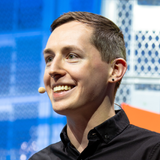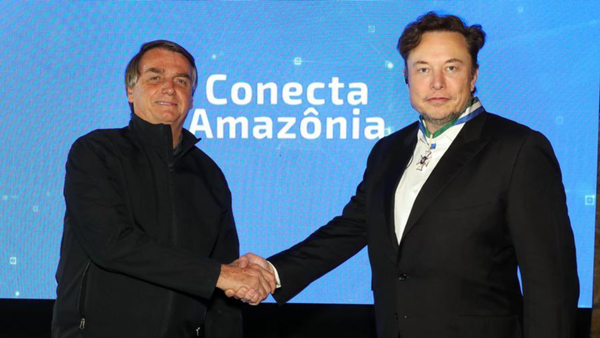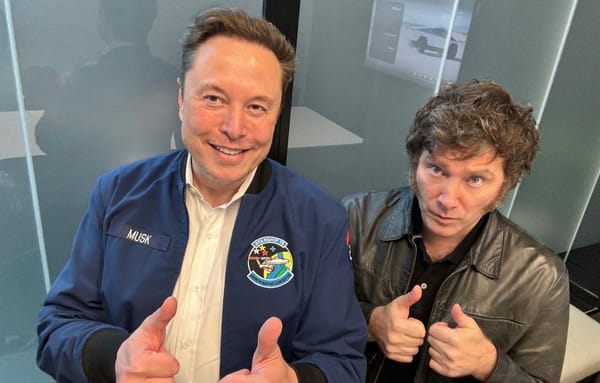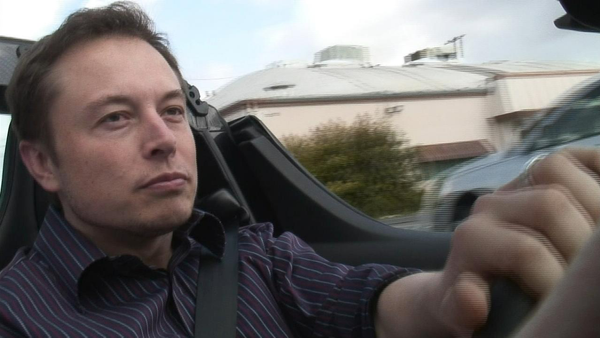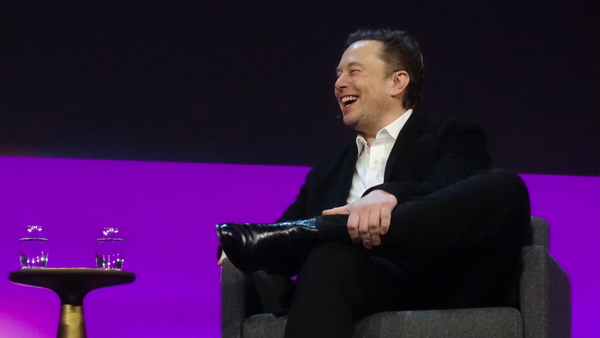Elon Musk doesn't know what's really happening on Twitter
What the BBC interview tells us about Musk and Twitter
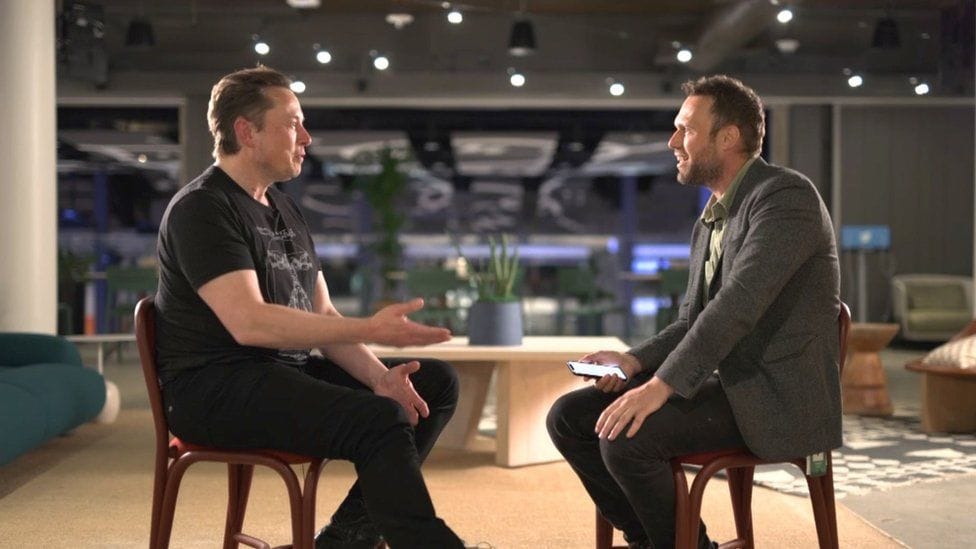
On Tuesday evening, BBC reporter James Clayton got a rare interview with Elon Musk at one of Twitter’s offices in San Francisco. There’s been quite a lot of ink spilled over the interview — not to mention the tweets it’s inspired — in the past few days as Musk revealed some new information and more about himself, but also seemed to get in some “wins” against the journalist. That was in part because of how poorly prepared Clayton was to interrogate one of the richest men in the world.
He reportedly only got 20-minutes notice that the interview was going to happen, and throughout you can see him glancing down at the notes he’d quickly typed out on his phone. That meant he didn’t have much concrete information to back up his questions, so when Musk chose to push back or not directly answer, Clayton had a hard time nailing him down.
The image Musk presented was one where things are going pretty great at Twitter after some rough months that were necessary because of the failures of the previous management, which isn’t exactly true. But that doesn’t mean the whole experience hasn’t been tough on him, he assured Clayton, while giving little consideration to the thousands of people he rapidly fired in the months after taking over the company.
I want to break down some of the key things I felt came out of the interview. Some of them are moments were Musk was clearly misleading Clayton, but the journalist didn’t have the facts to push back, and others are simply things that I think are illustrative about Musk himself. So, let’s get started!
You can see the full interview on BBC’s website, or reuploaded on YouTube.
Hate speech and moderation
Let’s start with the most prominent exchange to come out of the entire interview: the one where Musk seemed to “own” Clayton by catching him in a poorly framed question and where Clayton acted as though he was personally seeing more hateful posts on the platform when it seems pretty clear he wasn’t. Musk himself has been promoting this segment to his followers because it fits the whole story they tell about journalists being a bunch of liberal liars that can’t be trusted (a narrative Musk himself pushes throughout the interview).
It’s pretty clear that Musk isn’t buying into the idea that misinformation and hate speech are much of a problem. He says that hate speech should be explicitly defined by governments, and then Twitter would take down what they’re told in each country. He also suggests that “one person’s misinformation is another person’s information” — a bit of a wild statement, but not a surprise when you consider how he’s constantly replying to conspiracy theories as though they’re describing reality.
Musk argues that misinformation is down because he’s eliminated bots — something that’s not at all clear — and because Community Notes exists to clarify tweets with false information, but really pushes back when Clayton says there’s more hate speech on the platform. It’s obvious that Musk’s response isn’t informed by any data, but by his personal experience: he says that he doesn’t see more hate speech, and asks if Clayton has (which is where Clayton fumbles the exchange because he buys into Musk’s anecdotal framing).
The reality is these are two white guys, including one of the richest men in the world, talking about whether they’re seeing hate speech, and it’s no surprise they’ve got little to compare notes on. The research suggests Musk is wrong though.
The Institute of Strategic Dialogue found anti-Semitic tweets doubled from June 2022 to February 2023, while the Center for Countering Digital Hate found huge spikes in slurs targeting Black people, women, and the queer and trans communities. The Washington Post found the algorithmic “For You” feed is boosting hate speech and extremist content, and the problem of hate speech is particularly bad in large non-English markets where Twitter clearly isn’t paying much attention because, well, Elon Musk doesn’t speak those languages, nor does he really care. (It’s worth noting that part of the reason this has gotten so much worse is because Musk unbanned a ton of hateful and extremist accounts after taking over).
This isn’t just stuff that happens on a social media platform and stays there; it can have serious consequences out in the world. In Germany, Twitter could face fines of up to €30 billion because it hasn’t been taking down posts containing illegal hate speech, as identified under the NetzDG law. Remember that Musk says he’ll follow countries’ laws around hate speech, but clearly isn’t in this case. Even worse is what’s going on in Brazil right now.
After a string of recent school shootings in Brazil, including a recent attack at a daycare center where four children were killed, the government is trying to crack down on social media posts that promote school shootings, including vile content such as the photos and names of attackers, images of mutilated children, and songs encouraging further attacks. The Justice Minister recently met with representatives of the various platforms, and Twitter explicitly refused to take down these types of posts. A list of violent accounts were provided to Twitter, but the company acted on very few of them. That not only angered the Justice Minister, who said it was like the rules of the platform trumped Brazil’s Constitution and the lives of young people — again, going against Musk’s claims about following countries’ rules — but also the people of Brazil who have been using the hashtag #TwitterApoiaMassacres, or Twitter Supports Massacres, to draw attention to what’s happening. (I’d embed one, but Twitter embeds seem to be broken again.)
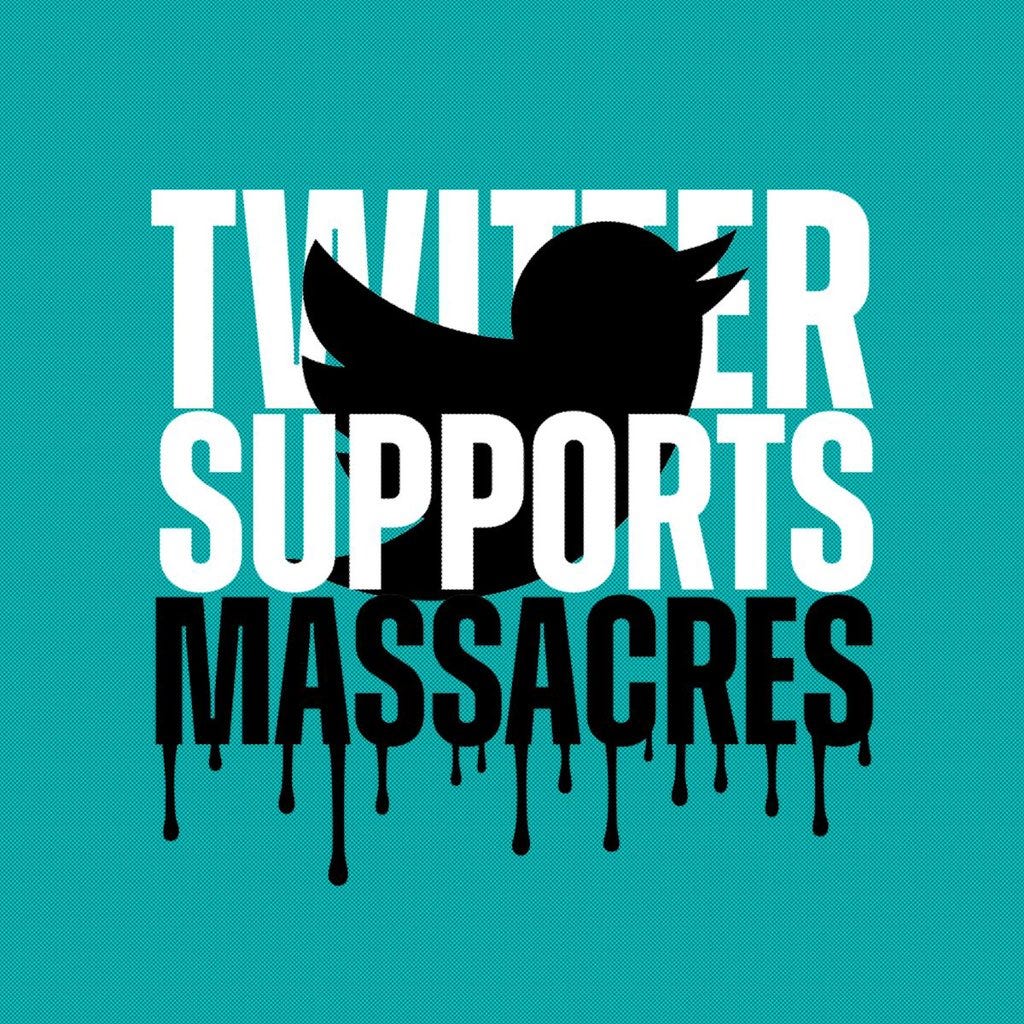
Meanwhile, to compare to the situation in Brazil where Twitter is refusing to take action, that isn’t the case in India, where Musk’s styling as a free speech warrior is being tarnished because of Twitter’s heavy-handed content removals to keep the far-right government of Narendra Modi happy. It’s interesting to see where Musk chooses to keep to his stated guiding principles, and where he doesn’t. But he’s clearly misleading people as to how Twitter really approaches these issues, and the reality of what’s happening on the platform. I would say that’s because he doesn’t care to know himself.
The state of the business
As we all know, Twitter is in a rough place and that’s been part of the justification for the actions Musk has taken since his reign over the company began. In the interview, Musk explains that before he took over, Twitter was effectively running at break even on $4.5 billion in revenue — it wasn’t making money, but it wasn’t losing it either. But his ownership came with a sizeable debt load carrying interest payments that amount to about $1.5 billion annually (a number Musk confirmed in the interview), paired with a significant decline in ad revenue with he says was “partly cyclical and partly political concerns,” ignoring how it was also the product of decisions he made when he took over.
As a result of the debt and the consequences of his decisions, drastic actions had to be taken to cut costs, which has included not paying contractors, missing rent payments, shutting down an important data center, and cutting Twitter’s headcount from about 7,800 workers to the 1,500 that remain, according to Musk. When challenged on these layoffs, Musk says they were “not uncaring” but argues that if he hadn’t done them, everyone else would’ve lost their jobs too. Clayton makes a good interjection during this response to ask how much Musk is worth, implying he could’ve been a bit less harsh on the workers if he chose to. (I’ll return to his thoughts on the workers in the next section.)
However, after all the pain, Musk says Twitter is close to breaking even and could be “cash flow positive” this quarter. Considering Musk’s track record and the fact Twitter is a private company now, I’d take this statement with a grain of salt. Notably, Musk admits subscriptions aren’t going to work as Twitter’s primary business model in the interview, and says that most advertisers have returned or are planning to. That seems like a bald-faced lie, based on publicly available information.
We know that by January, more than half of Twitter’s advertisers had fled the platform, and that its top 10 advertisers were spending 89% less as of last month. In September and October of last year, they were spending $71 million, but in February and March 2023 that number had dropped to just $7.6 million. I’m sure Musk hasn’t made up that massive gap with all the low-quality ads most users are seeing these days, and we know plenty of advertisers still aren’t planning to return.
Ahead of his appearance at a major marketing conference next week, Semafor obtained private emails showing marketing executives at top advertisers like McDonald’s and Colgate-Palmolive expressing concern about the racism allowed on Twitter and Musk’s personal comments on race. “For many communities, his willingness to leverage success and personal financial resources to further an agenda under the guise of freedom of speech is perpetuating racism resulting [in] direct threats to their communities and a potential for brand safety compromise we should all be concerned about,” wrote Tariq Hassan, chief marketing and customer experience officer at McDonald’s.
That doesn’t sound like the comments of advertisers eager to get back on Twitter. The reality is that Musk needs advertisers much more than they need him, as they have much bigger and more effective ways to access consumers than Twitter — but Musk isn’t playing the part to get them back onside. The biggest tool he wields are his personal criticisms of companies, but not everyone is going to spend on Twitter just to avoid his ire. And for those that do, it doesn’t mean they’ll spend as much as before.
Twitter’s fiscal reality seems unlikely to reflect the rosy picture Musk is painting to the public.
It’s all about Elon
Moving away from the business side of things for a moment, the interview really shows how, for Musk, the world revolves around him. When Clayton asks for his first thoughts upon arriving at Twitter, he says the office building was nice and the company was spending a lot of money — nothing too deep, and certainly nothing about the workers he was meeting in those first few days and would rapid begin kicking to the curb. Indeed, he seems to treat the whole experience as a bit of a joke.
To make a direct comparison, consider how Musk feels about the workers and his reflections on his experience running the company. As I noted earlier, when Clayton pushes him on the layoffs, he says it was not uncaring and absolutely necessary — then asks Clayton what he’d do on the situation, which is when Clayton asks how much Musk is worth, causing him to say he has no regrets and discuss how it’s hard for him to sell Tesla stock. Later, Clayton asks what the hardest part of the past six months has been, and Musk responds by talking about shutting down a data center. Again, Clayton asks about the workers, and at this point Musk says it was “painful,” but refuses to expand on that. It’s hard to feel he really means it, when earlier in the interview he was singing a different tune.
But compare that to when Clayton asks about Musk’s own experience of the last six months. He says taking over Twitter has brought an “extremely high” level of pain for him personally, in part because he’s been “under constant attack” and it’s been hurtful to see so many negative stories about him in the media. “It’s not like I have a stone cold heart,” he says at one point. It’s at this moment of slight vulnerability where you can be tempted to feel empathy for him, as any human would seeing another person dealing with a difficult situation. But then you remember who he is, and how he’s been using the vast wealth and power he’s been granted by society — not only in laying off so many workers in what most people would consider an “uncaring” fashion and allowing hate speech and harassment to increase on Twitter because he doesn’t experience it personally, but also in many ways beyond Twitter.
Think about the racist and sexist environment he oversaw at Tesla while consistently fighting their attempts to unionize; the way he’s misled the public about the capabilities of Tesla’s assisted driving features, which has contributed to crashes and even deaths; or even how he’s using the hype around SpaceX to get away with threatening a protected wildlife refuge in Texas. Again and again, he refuses to consider his impact on other people and environments as he pushes forward with the projects he wants to see realized. He displays little empathy for others, so when he complains about the repercussions of his actions — while refusing to acknowledge most of the times he’s done something wrong — it’s hard to feel much empathy for him either.
A few final points
To round off this breakdown of the BBC interview, a few lighter points:
- Musk says he doesn’t support a TikTok ban, even if it means more people would end up using Twitter.
- When pressed on ending Twitter’s Covid misinformation policy, Musk says “Covid is no longer an issue” and repeats anti-vaxx nonsense, asking when the BBC will apologize for spreading misinformation on masking and the side effects of vaccines. Coming from the man who tweeted on March 19, 2020 that there’s be “close to zero new cases in the US” by the end of April then caused an outbreak at the Fremont, California Tesla factory in May 2020 after reopening it in defiance of public health rules, we shouldn’t expect much better, but it is concerning that he controls such an important platform for disseminating information.
- After the official interview was over, Clayton asked Musk about the emerald mine in Zambia, incorrectly calling it a diamond mine. As I tweeted in January, the Musk family has been very active in trying to rewrite the history on the emerald mine recently. Musk tells Clayton he wants to see a photo of the mine, and that his father never owned a stake in one. “It doesn’t exist. It’s fake,” says Musk. But in 2014, he was saying something much different. “This is going to sound slightly crazy, but my father also had a share in an Emerald mine in Zambia,” he said at the time. “I was 15 and really wanted to go with him but didn't realize how dangerous it was. I couldn't find my passport so I ended up grabbing my brother's - which turned out to be six months overdue! So we had this planeload of contraband and an overdue passport from another person. There were AK-47s all over the place and I'm thinking, ‘Man, this could really go bad.’” If I was bragging about such a story, I guess I might be trying to rewrite history too.

